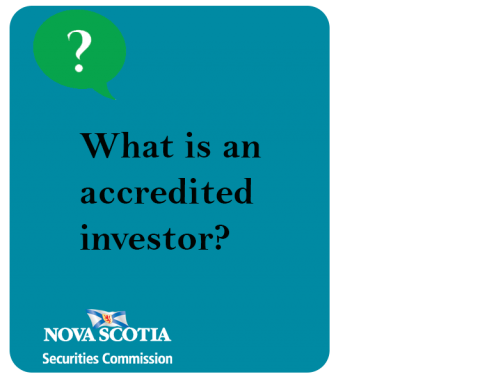Submitted by nsscadmin on

In last week’s question of the week blog post we mentioned the term accredited investor. That left some of our readers scratching their heads, because they didn’t know what an accredited investor was.
The long definition of accredited investor can be found in National Instruments 45-106 – Prospectus Exemptions. If you don’t have time, or don’t have the legal background to read through NI 45-106 we’ll try and simplify what it says about accredited investors.
The quick and easy definition of an accredited investor is a person or entity that can purchase securities by satisfying one of the financial tests regarding income, net worth, asset size, or have governance status or certain professional experience.
The criteria include a few different tests, but we’ll go through them to explain how they work.
Income:
You qualify as an accredited investor if your net income before taxes exceeded $200,000 in both of the last two years and you expect to maintain at least the same level of income this year – or - your net income before taxes, combined with that of a spouse, exceeded $300,000 in both of the last two years and you expect to maintain at least the same level income this year.
Net Worth:
You qualify as an accredited investor if you alone or together with a spouse, own financial assets worth more than $1 million before taxes but net of related liabilities and excluding your primary residence.
Assets:
You qualify as an accredited investor if you alone or together with a spouse, have net assets of at least $5,000,000, which can include your primary residence.
Governance status or professional experience:
You may qualify as an accredited investor if you are currently or were, a registered advisor or dealer, other than a limited market dealer.
Accredited investors need to meet these requirements because they are eligible to invest in exempt securities that often come with higher risks. Their financial situation or investing experience are seen as being necessary to handle and understand these increased risks.
